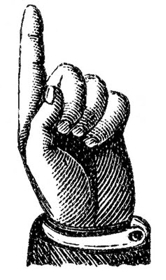These surnames emanate from different parts of Scotland, but all are rooted in the personal name Payne. The Old English word “payn” was a name given to a villager or someone who lived in the country.
According to House of Names, the west coast of Scotland and the Hebrides Islands were home to both the Ping and Pang families, while a northern region of Scotland, Dalriada, was home to the Pung and Pagan families. In ancient times it was a Gaelic kingdom which comprised parts of western Scotland and northeastern Ulster in Ireland.
 Pagan is noted as a spelling variation of Ping, Pang and Pung, including other spellings such as Paganell, Paganel, Pagnell, Paine, Payne, Pain and others. Immigration records show that some of the Scottish settlers who crossed the ocean to North America went to Canada. And, some who landed in America went north to Canada during the Revolutionary War, considering themselves Loyalists to the King of England.
Pagan is noted as a spelling variation of Ping, Pang and Pung, including other spellings such as Paganell, Paganel, Pagnell, Paine, Payne, Pain and others. Immigration records show that some of the Scottish settlers who crossed the ocean to North America went to Canada. And, some who landed in America went north to Canada during the Revolutionary War, considering themselves Loyalists to the King of England.
Thomas Paine, American patriot and activist, spurred the colonists to revolution with his fiery rhetoric, published in pamphlets such as Common Sense and The American Crisis. Clearly, he was not a fan of the King, and his works were viciously attacked by Loyalists. Surprisingly, some of his works weren’t welcomed by other American revolutionaries. Late in his life John Adams was quoted as saying of Common Sense: “What a poor, ignorant, malicious, short-sighted, crapulous mass.”
After the war, Paine returned to England in 1787 and became involved in yet another revolution – the French Revolution. As an enthusiastic supporter of the French Revolution, he published pamphlets and was given honorary French citizenship (Benjamin Franklin, George Washington and Alexander Hamilton were also so honored).
He eventually found himself on the wrong side of the faction known as the Girondins who wanted to do away with the monarchy. Paine, siding with Louis XVI because he was personally opposed to capital punishment, was arrested and thrown in prison in December of 1793. Claiming that he was an American citizen didn’t help his cause either.
Through a quirk of fate he narrowly missed being executed. The jailer went through the prison and placed a chalk mark on the door of those who were awaiting execution. The mark was placed on the outside, but for some reason Paine’s door was open and the mark was placed on the inside. He was released the following year and remained in Paris until 1802.
In 1796, incensed that George Washington had done nothing on his behalf while imprisoned, he fired off a scathing letter, calling the President of the United States a dishonorable and treacherous man: “The world will be puzzled to decide whether you are an apostate or an impostor; whether you have abandoned good principles or whether you ever had any.”
Paine eventually returned to America, but found himself out-of-favor with many after his recent writings and his very public attack on George Washington. He died on June 8, 1809 and disdained was he in his own country, the Quakers (he was Quaker) wouldn’t allow him to be buried in their graveyard. He was buried near a walnut tree on his farm.
Some newspapers made only a passing mention of his death. The New York Evening Post printed the original obituary, which was then copied by newspapers across the country. One statement summed up widespread American sentiment of Thomas Paine at that point in history: “He had lived long, did some good, and much harm.”
Pings in Pulaski County, Kentucky
My Tombstone Tuesday article this week (read it here if you missed it) was about Iredel and Siotha Ping Wright of Pulaski County, Kentucky. I generally don’t write Tombstone articles about people who are related to me, but Iredel and Siotha lived in the county where many of my ancestors settled. Many distant relatives still live there, and although I’ll probably never meet any of them, I saw names familiar to me when researching these articles.
I thought “Ping” might not break my rule-of-thumb, but as it turns out the Ping family is probably related, at least by marriage in some cases, to at least two of my ancestral lines, Brinson and Earp. It’s quite possible they also married others of my line like the Stogsdills, Chaneys, Alexanders, Fulchers and more. It just fascinates me to no end how, I believe, we are all somehow related to one another. Maybe that’s the way the good Lord intended it, eh?
Research Note: These surnames aren’t exclusively Scottish or English. Ping and Pang are also Oriental or Asian surnames; Pagan (also spelled Pagán) is Hispanic.
 Did you enjoy this article? Yes? Check out Digging History Magazine. Since January 2018 new articles are published in a digital magazine (PDF) available by individual issue purchase or subscription (with three options). Most issues run between 70-85 pages, filled with articles of interest to history-lovers and genealogists — it’s all history, right? 🙂 No ads — just carefully-researched, well-written stories, complete with footnotes and sources.
Did you enjoy this article? Yes? Check out Digging History Magazine. Since January 2018 new articles are published in a digital magazine (PDF) available by individual issue purchase or subscription (with three options). Most issues run between 70-85 pages, filled with articles of interest to history-lovers and genealogists — it’s all history, right? 🙂 No ads — just carefully-researched, well-written stories, complete with footnotes and sources.
Want to know more or try out a free issue? You can download either (or both) of the January-February 2019 and March-April 2019 issues here: https://digging-history.com/free-samples/
Thanks for stopping by!